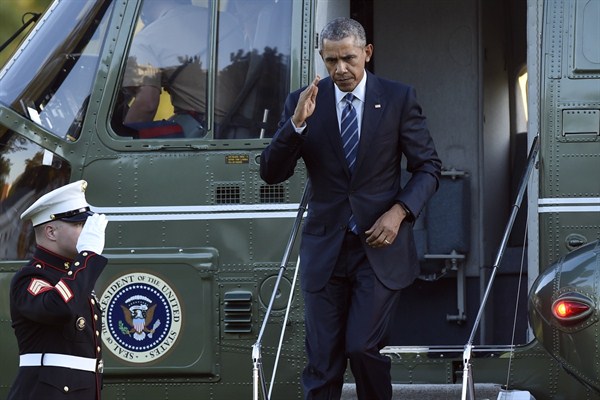The latest edition of the New York Times Magazine featured a cover story that aimed to challenge the generally accepted narrative of how the U.S. found and killed Osama bin Laden. The article by Jonathan Mahler centered on an alternative version of events by the investigative journalist Seymour Hersh. In Hersh’s telling, the story we have heard from the Obama administration and retold by a number of books and movies essentially amounts to a vast cover-up.
In exploring the controversy, Mahler focuses more on the hunt for the bin Laden story than on the hunt for bin Laden—that is, on the work of journalists trying to piece together the facts. But he inadvertently puts what has been one of the most salient characteristics of President Barack Obama’s foreign policy back into the spotlight: His intense aversion to risk-taking.
Mahler said his aim was not to uncover the definitive truth about bin Laden’s killing but rather to use the divergent versions as a case study in journalism and how “constructed narratives become accepted truth.”

